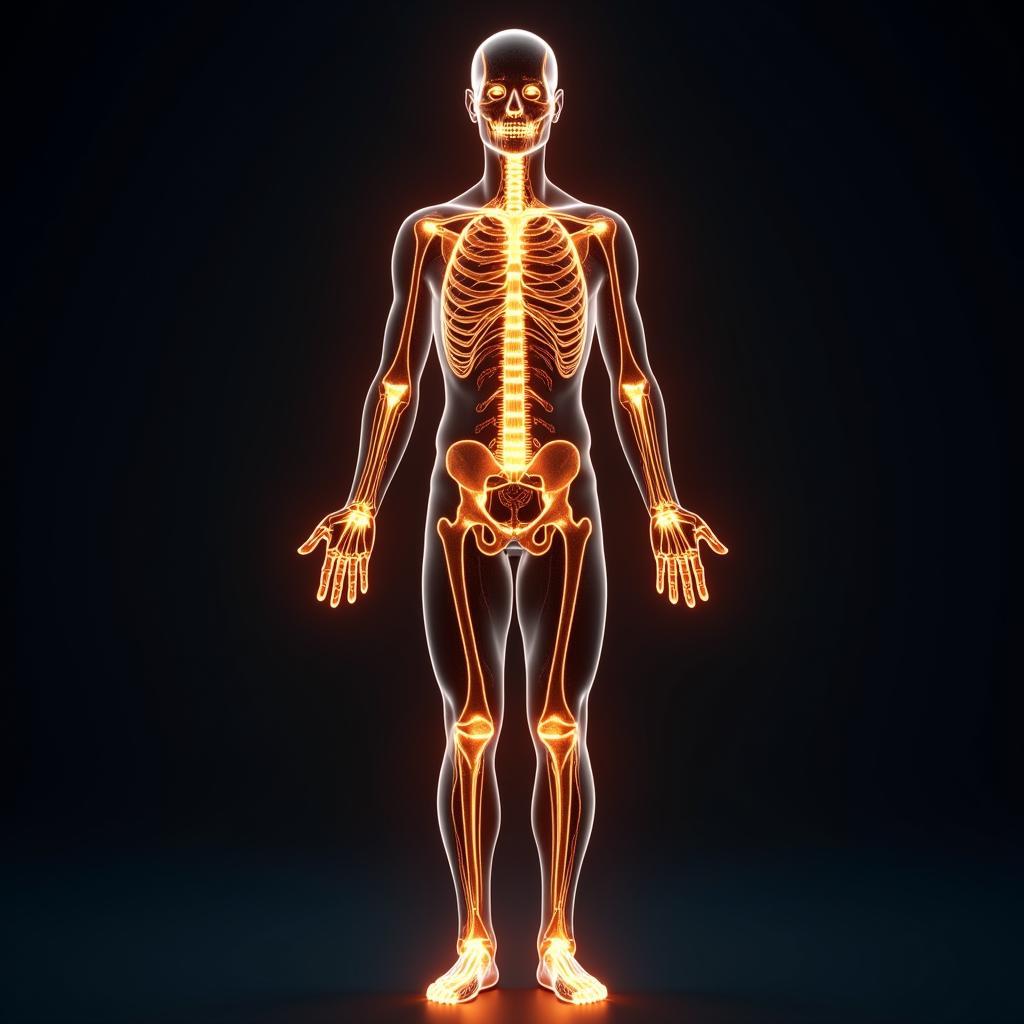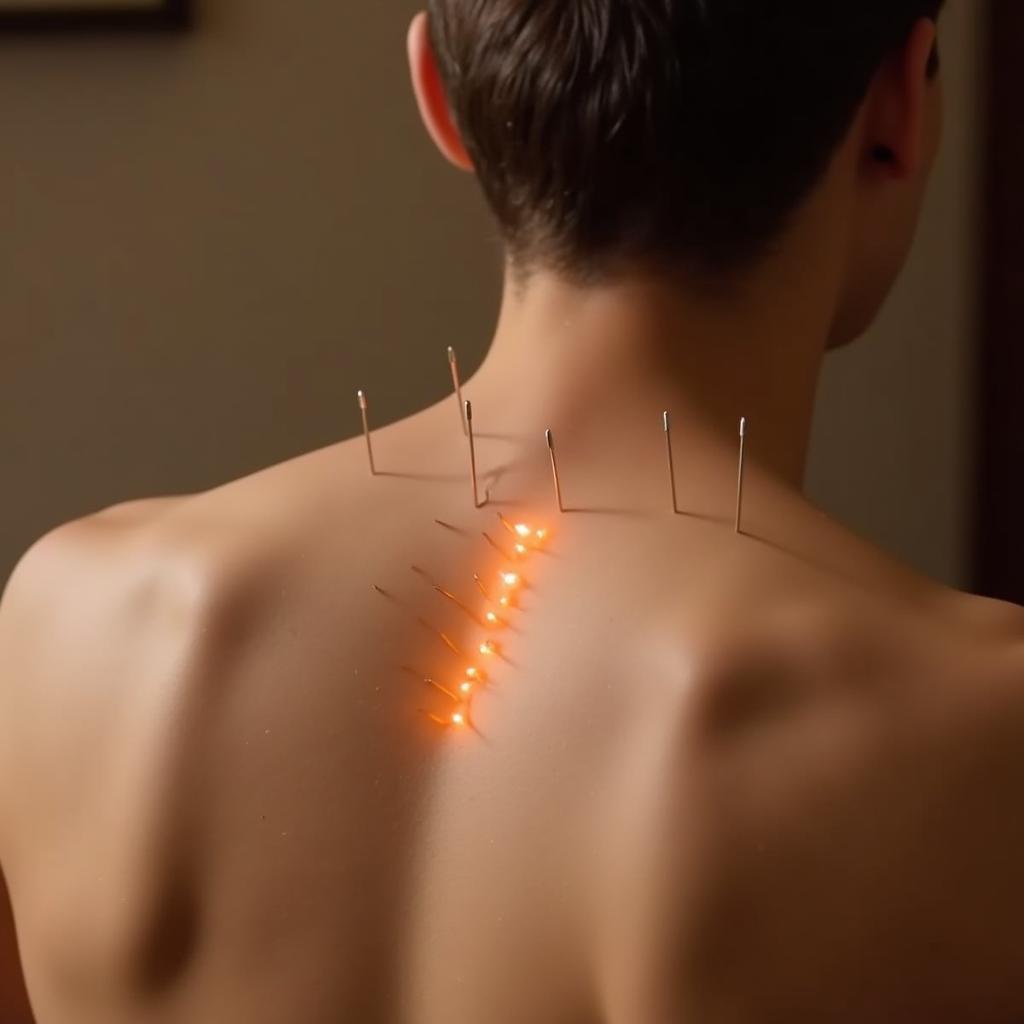Qi, often translated as “life energy” or “vital force”, is a fundamental concept in traditional Chinese culture and medicine. While not a tangible entity like blood or organs, Qi is believed to flow throughout the body, influencing all aspects of our physical, mental, and emotional well-being. “Qi Research”, therefore, delves into understanding the nature, functions, and potential applications of this elusive energy.
Unraveling the Enigma: What Exactly is Qi?
Imagine a river flowing through a vast landscape, nourishing and connecting everything it touches. Qi operates similarly within our bodies, navigating a network of pathways called meridians. This energy flow, according to traditional Chinese medicine, is responsible for vital functions such as breathing, digestion, and maintaining body temperature. Disruptions or imbalances in Qi are believed to contribute to illness and disease.
 Qi Flow in Meridians
Qi Flow in Meridians
The Science Behind the Mystery: Investigating Qi
While the concept of Qi may seem mystical, modern science is increasingly exploring its potential validity. Researchers are investigating the physiological mechanisms that might correspond to Qi, such as:
- Bioelectricity: The human body generates electrical currents involved in various bodily functions. Could Qi be related to these bioelectric fields?
- Infrared Radiation: All living organisms emit infrared radiation, a form of electromagnetic energy. Could Qi be linked to these subtle energy emissions?
- Acupuncture Points: Studies have shown that acupuncture points, key locations for manipulating Qi flow, often correspond to areas with increased electrical conductivity and nerve density.
 Acupuncture Points and Energy Flow
Acupuncture Points and Energy Flow
Qi and Health: Applications in Traditional Chinese Medicine
For centuries, traditional Chinese medicine (TCM) has employed various techniques to assess and balance Qi for optimal health. Some widely practiced modalities include:
- Acupuncture: Fine needles are inserted into specific acupuncture points to stimulate Qi flow and restore balance.
- Qigong: Mind-body practices like Qigong involve gentle movements, breathing exercises, and meditation to cultivate and harmonize Qi.
- Chinese Herbal Medicine: Herbs are carefully selected and combined based on their energetic properties to address Qi imbalances and support overall well-being.
Beyond the Body: Qi in Our Surroundings
The concept of Qi extends beyond the individual, encompassing the energy that flows through all things in the universe. This interconnectedness is reflected in practices like:
- Feng Shui: The art of arranging living spaces to harmonize with the flow of Qi, promoting health, prosperity, and well-being.
- Tai Chi: A graceful form of martial art that emphasizes slow, flowing movements to cultivate and balance Qi, enhancing physical and mental vitality.
 Tai Chi Practice in the Park
Tai Chi Practice in the Park
Qi Research: A Journey of Discovery
Despite centuries of practice and increasing scientific interest, much about Qi remains unknown. Continued research holds immense potential for:
- Developing new diagnostic tools: Can we measure and map Qi flow objectively?
- Enhancing therapeutic approaches: Can we optimize TCM techniques based on a deeper understanding of Qi?
- Unlocking the mind-body connection: Can Qi research shed light on the interplay between our thoughts, emotions, and physical health?
Embark on Your Qi Exploration
While the scientific community continues its exploration, incorporating Qi-enhancing practices into your daily life might offer profound benefits. Embrace Qigong, explore acupuncture, or delve into the wisdom of Feng Shui – you might be surprised by the transformative power of Qi.
FAQ: Delving Deeper into Qi Research
- Is there scientific evidence to support the existence of Qi? While definitive proof remains elusive, scientific studies are increasingly investigating physiological correlates of Qi, such as bioelectricity and infrared radiation.
- How can I tell if my Qi is imbalanced? TCM practitioners utilize methods like pulse and tongue diagnosis to assess Qi flow. Common signs of imbalance might include fatigue, digestive issues, or emotional instability.
- Can I learn Qigong or Tai Chi on my own? While guidance from qualified instructors is recommended, many resources are available for beginners to explore these practices.
Need Support?
For personalized guidance on your Qi journey, contact us at:
Phone: 0904826292
Email: research@gmail.com
Address: No. 31, Alley 142/7, P. Phú Viên, Bồ Đề, Long Biên, Hà Nội, Việt Nam.
Our dedicated team is available 24/7 to assist you.